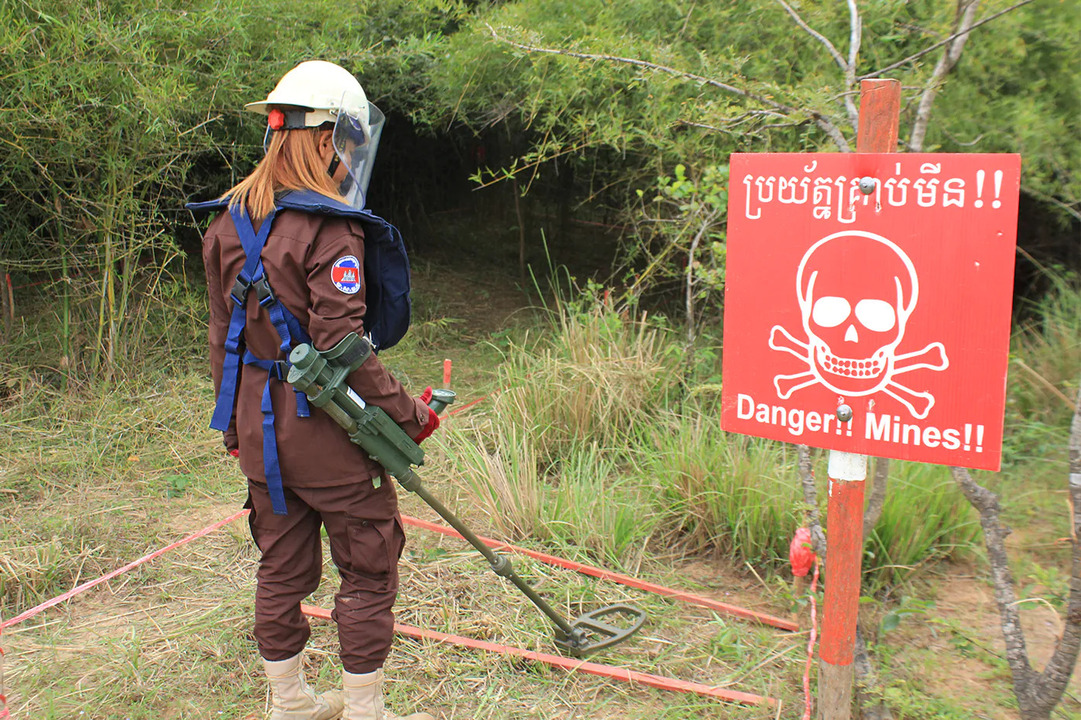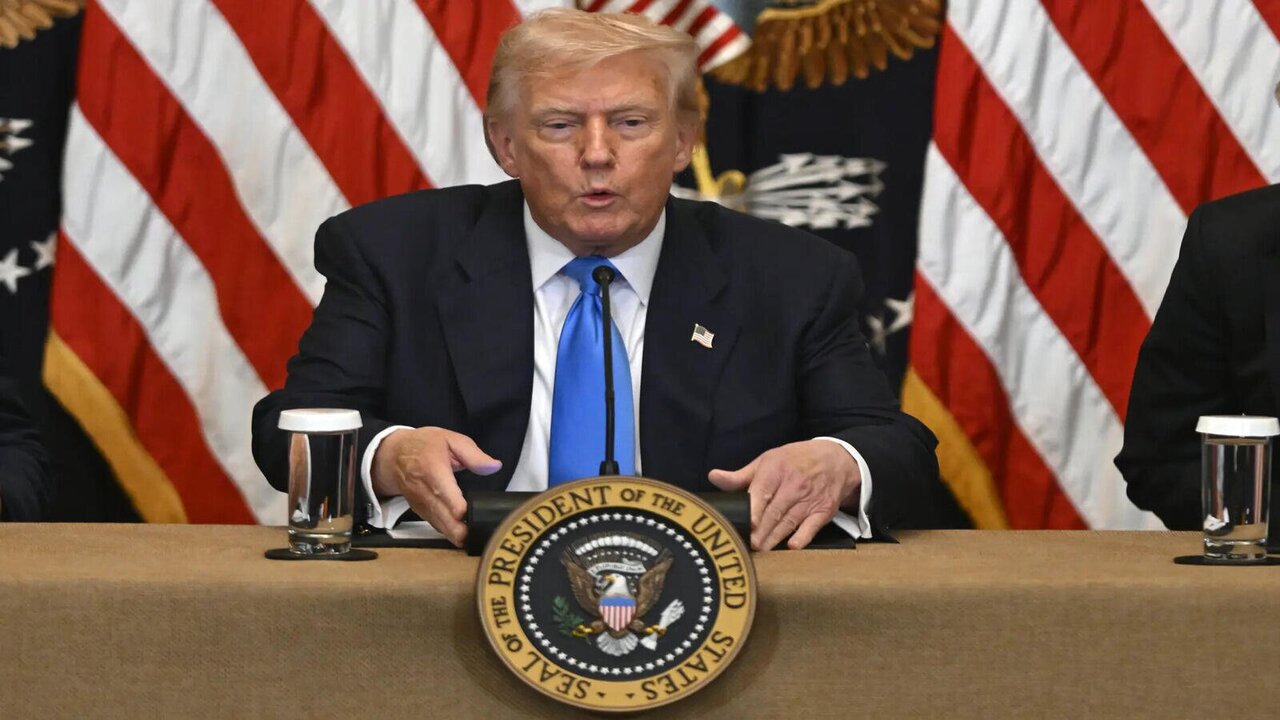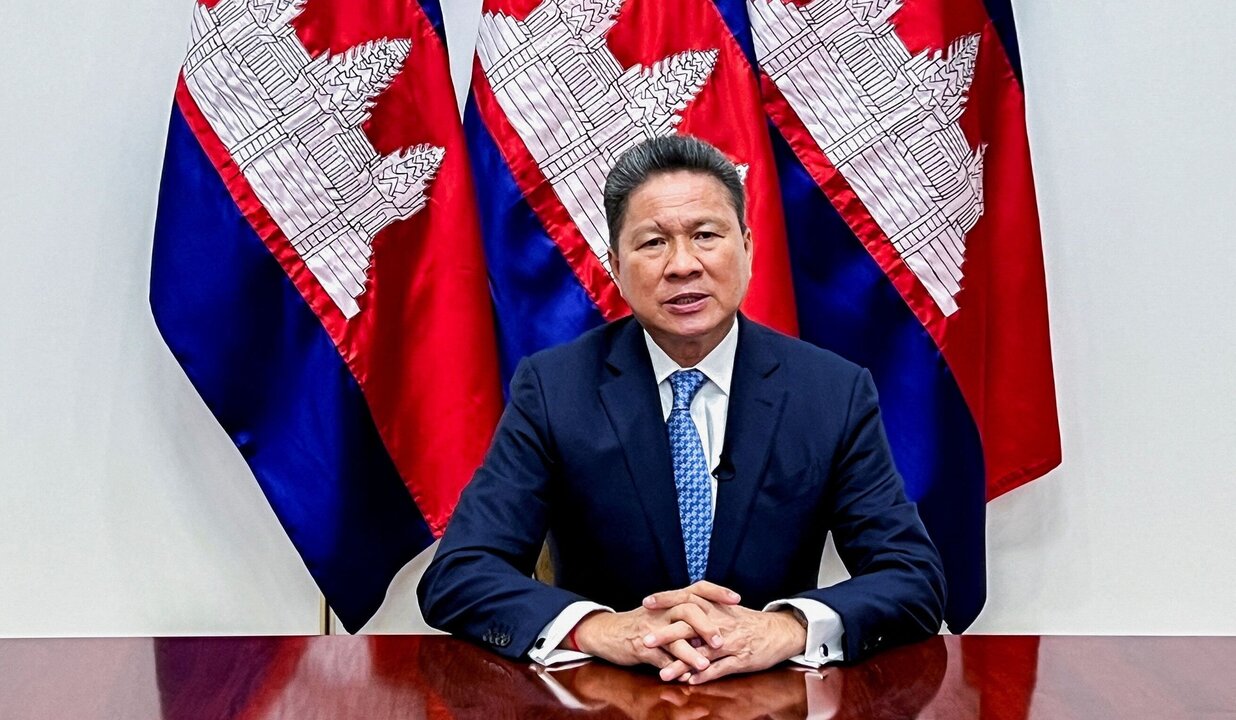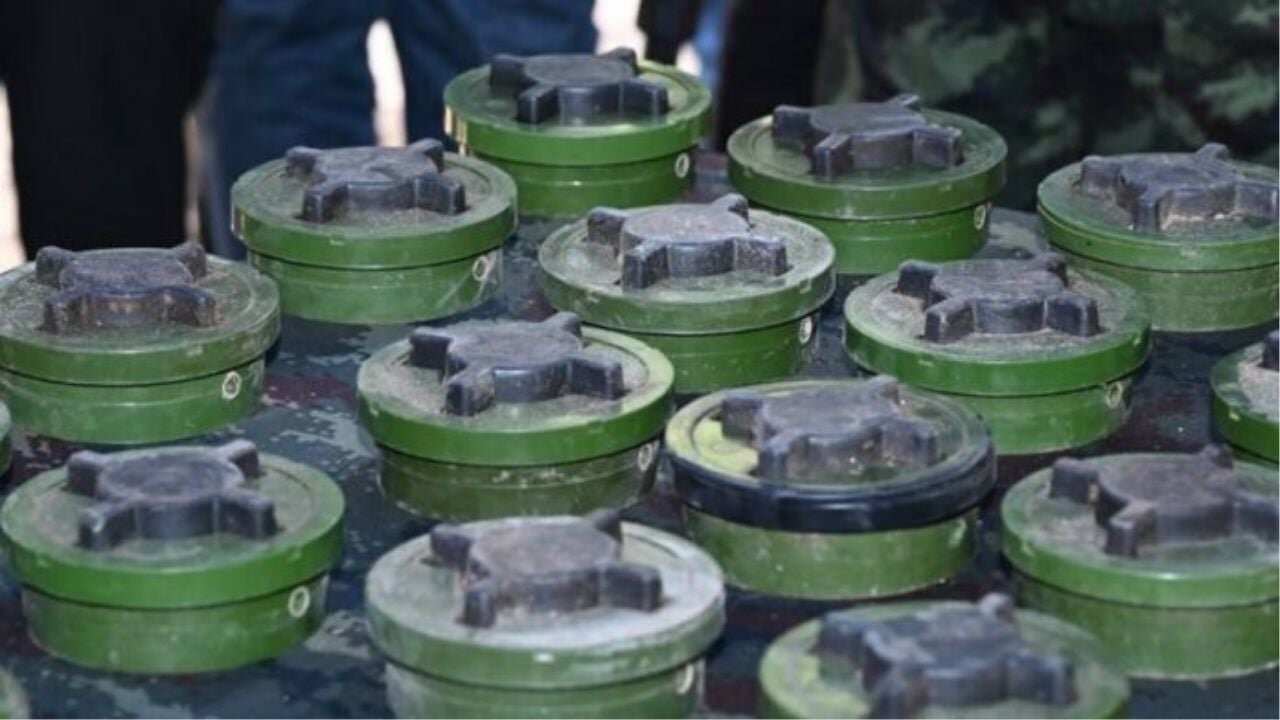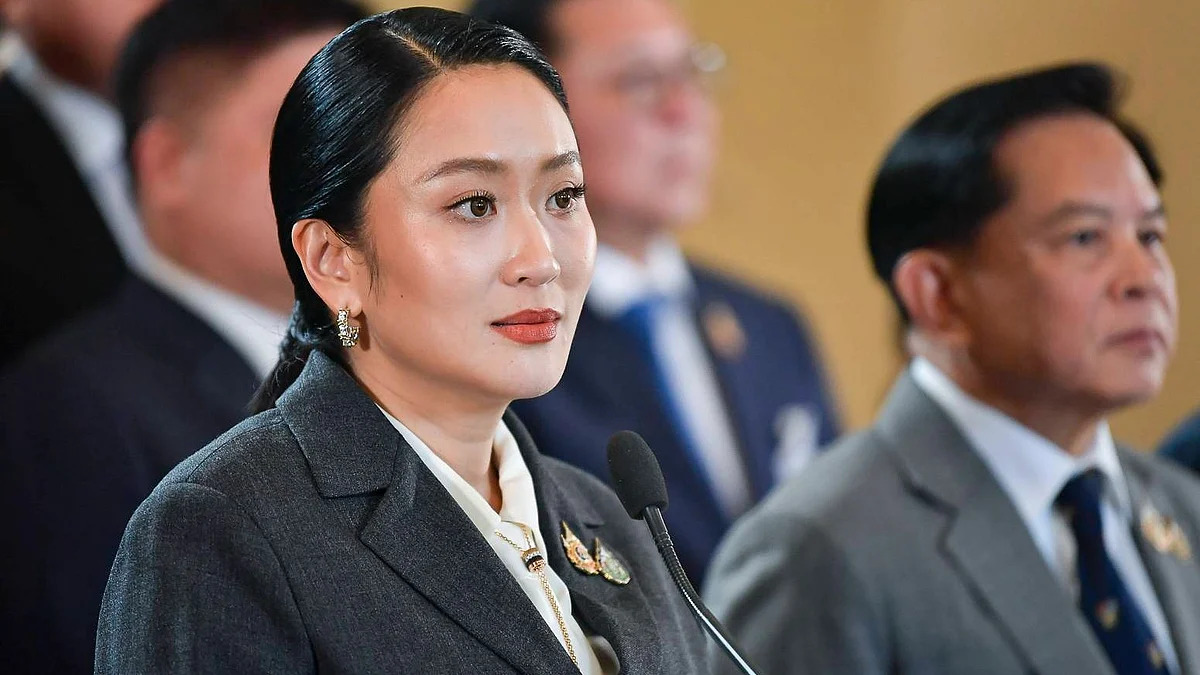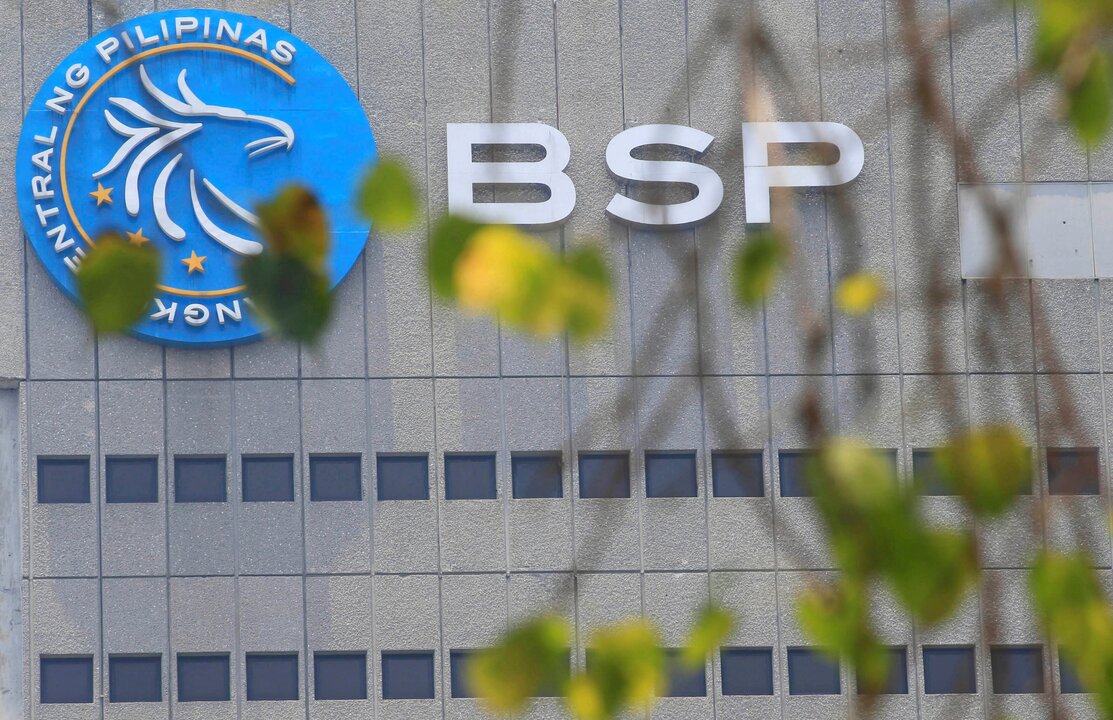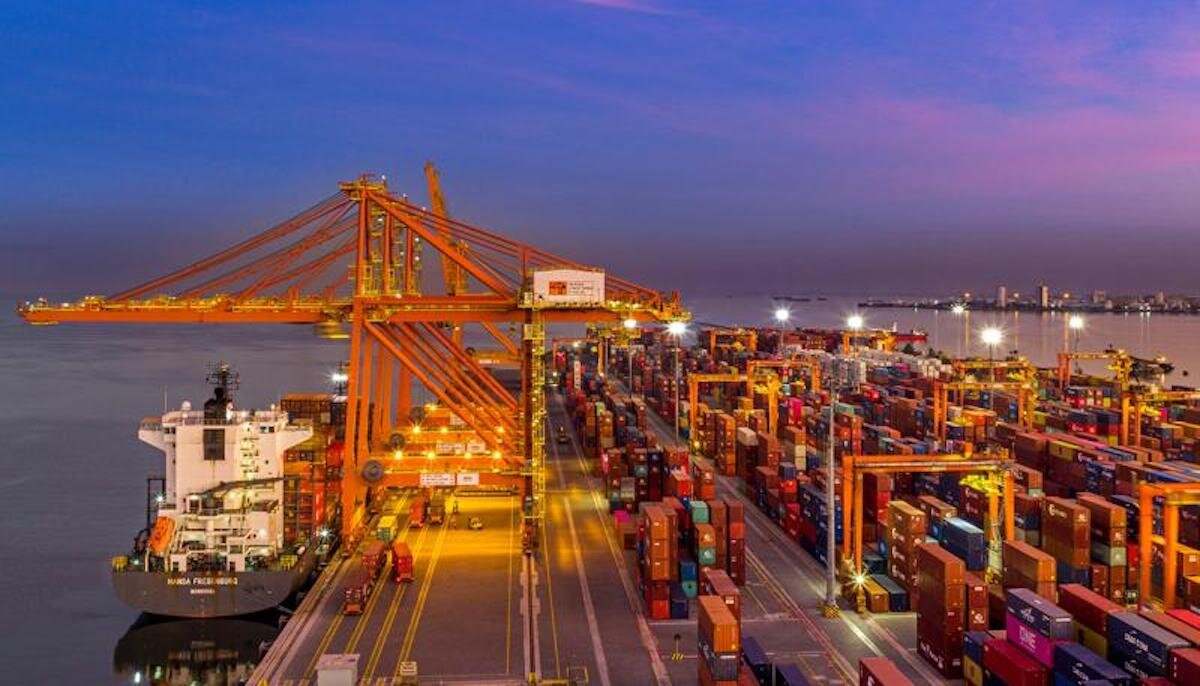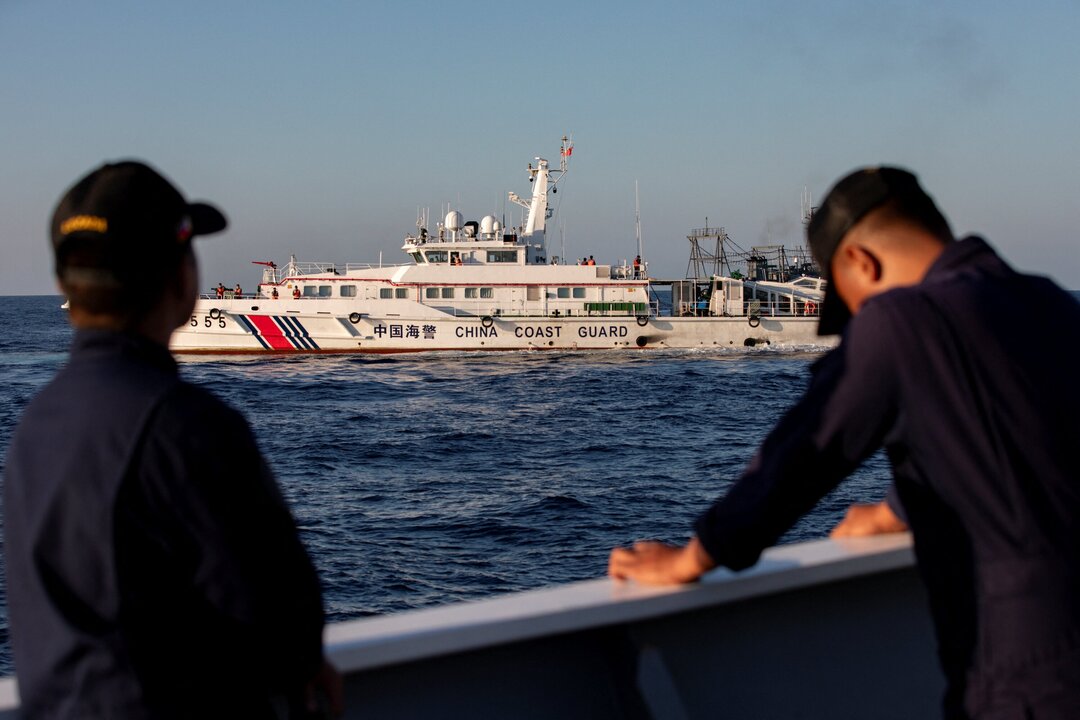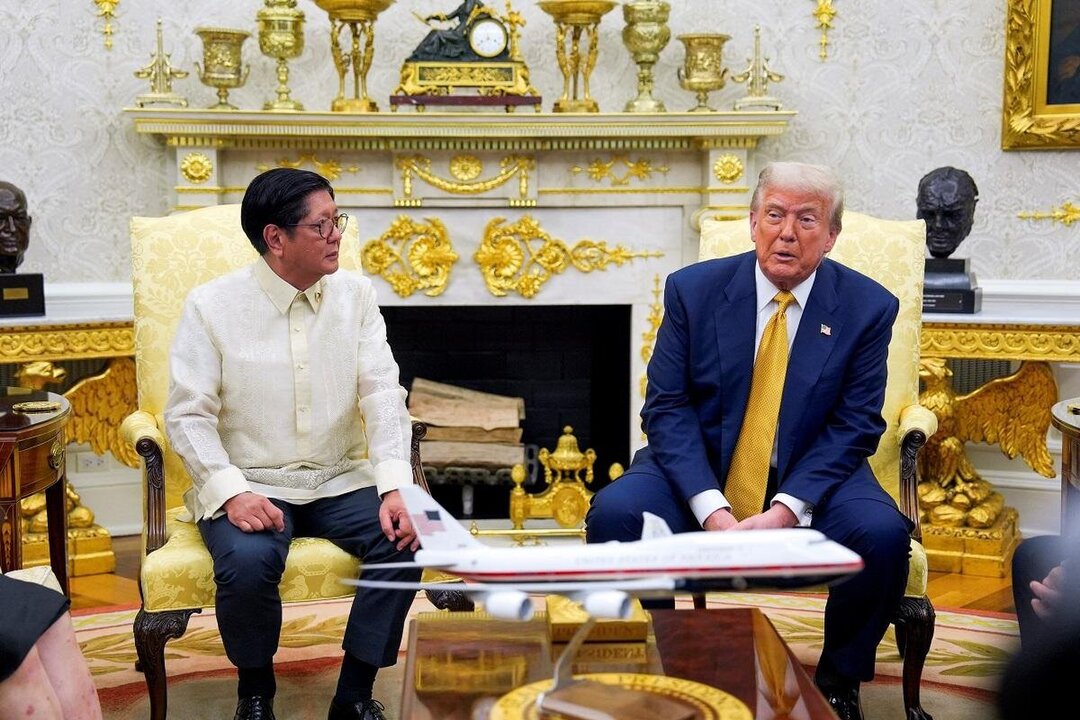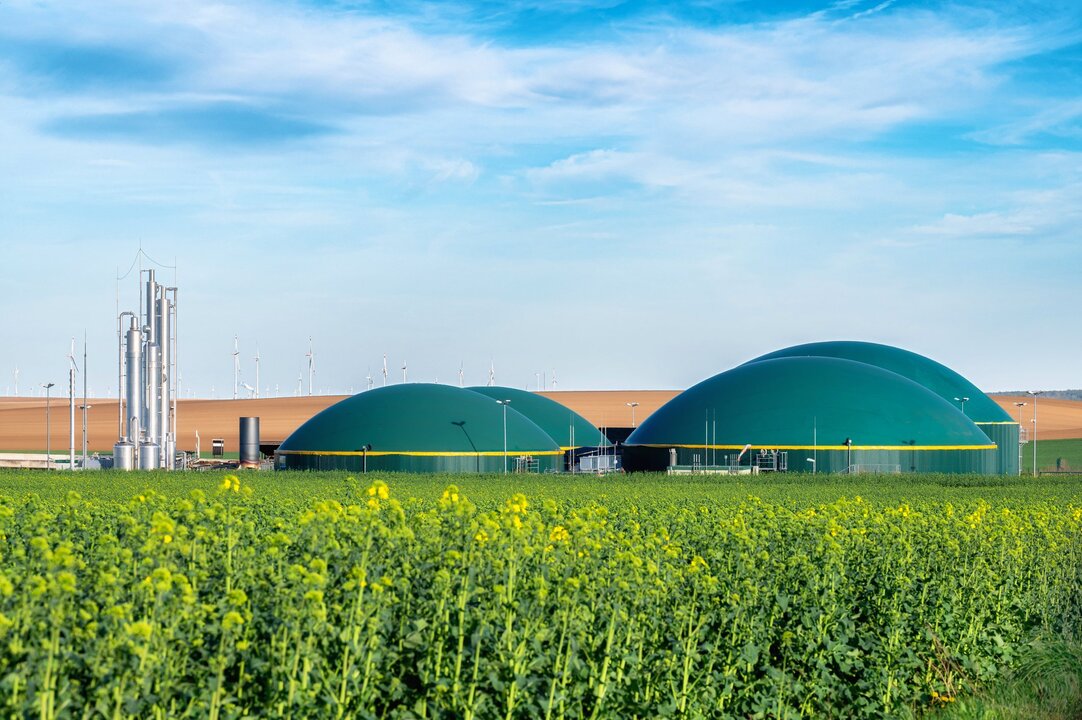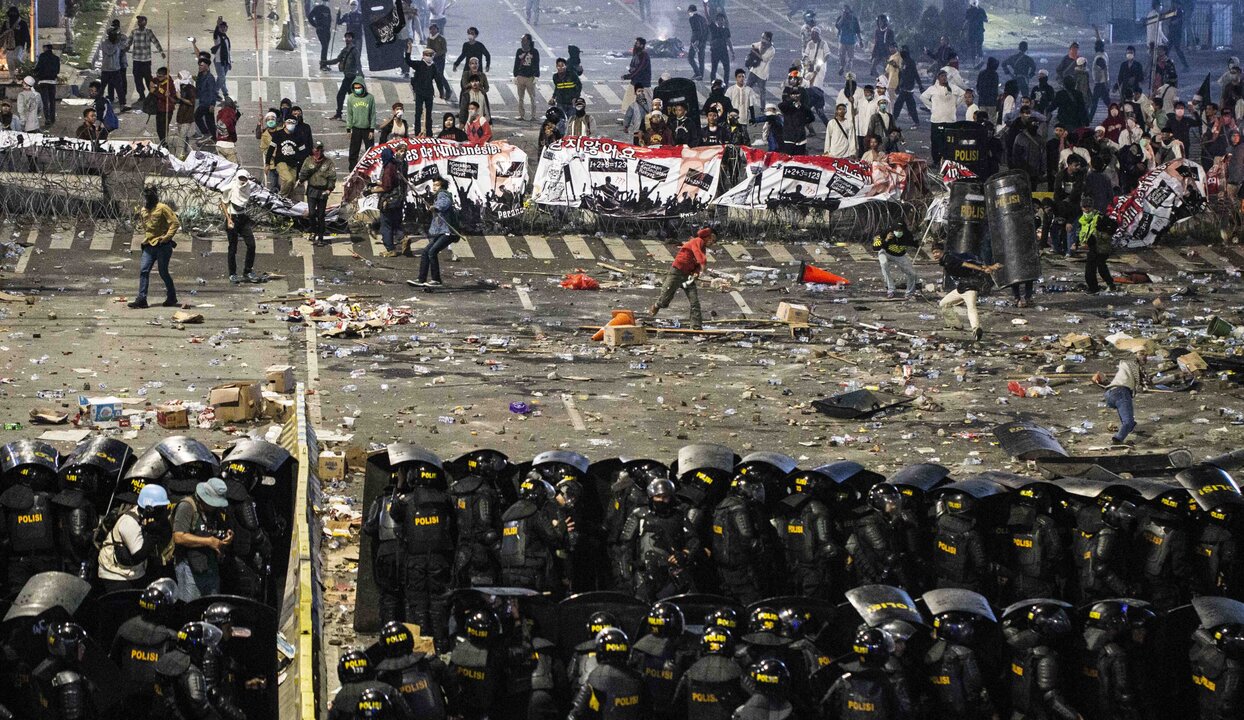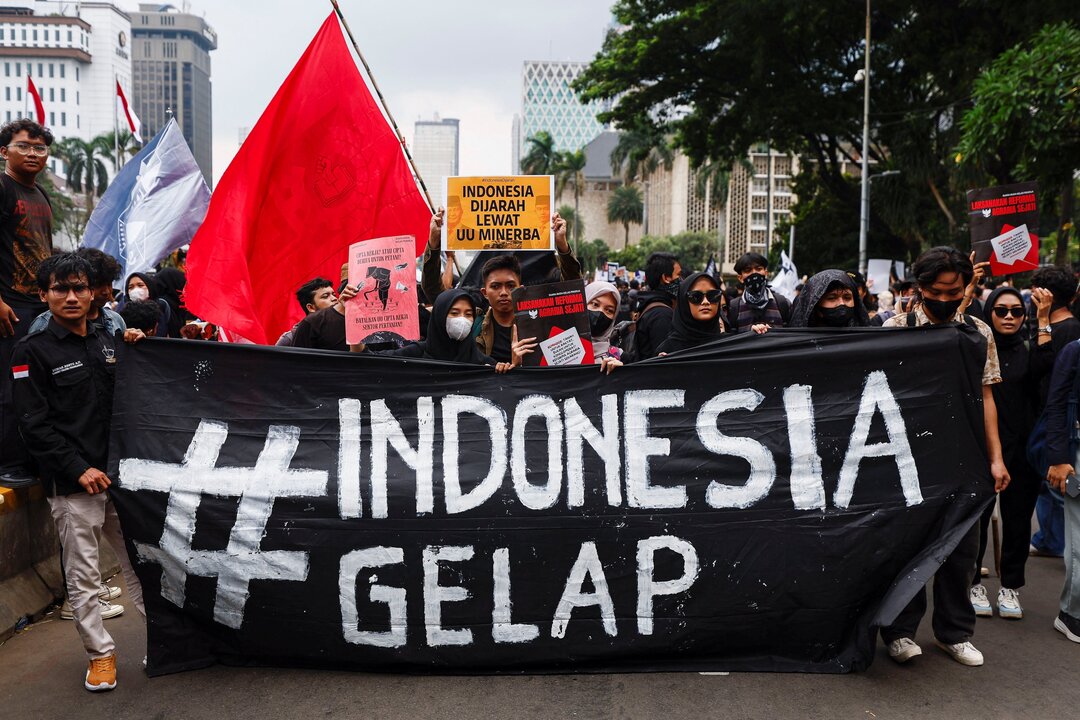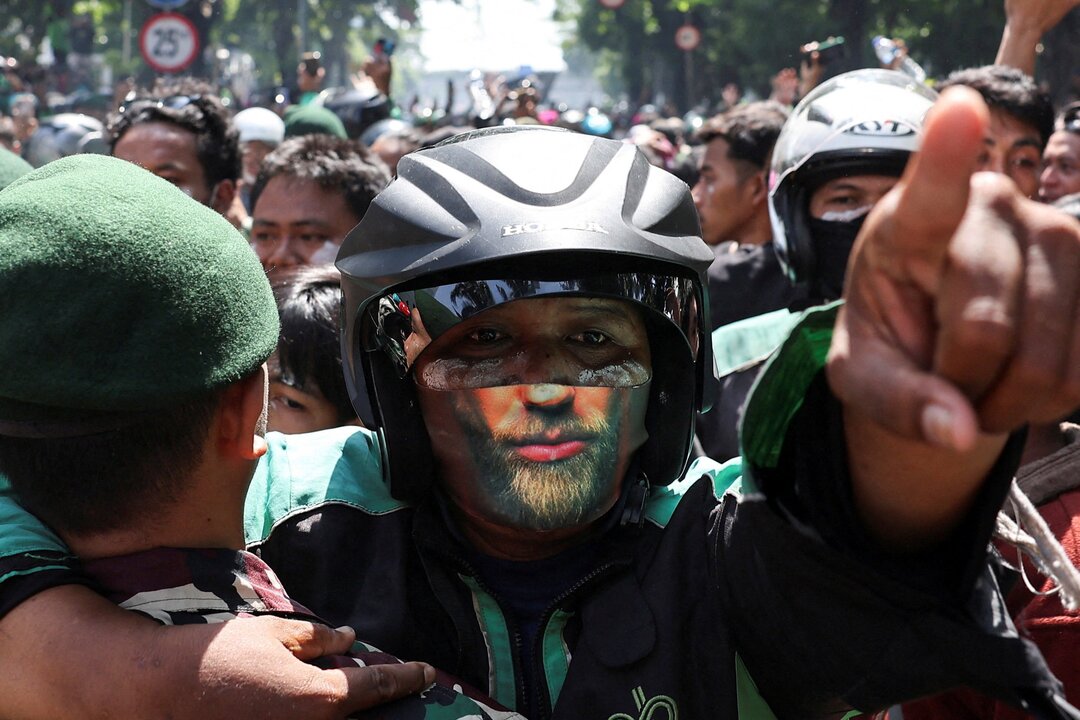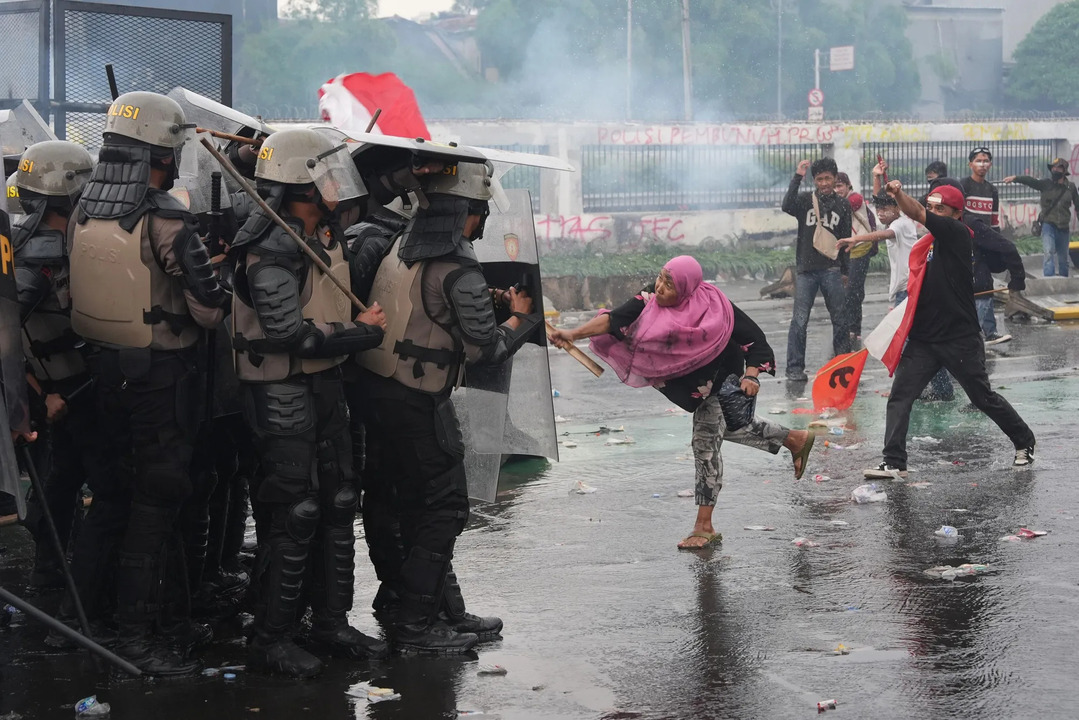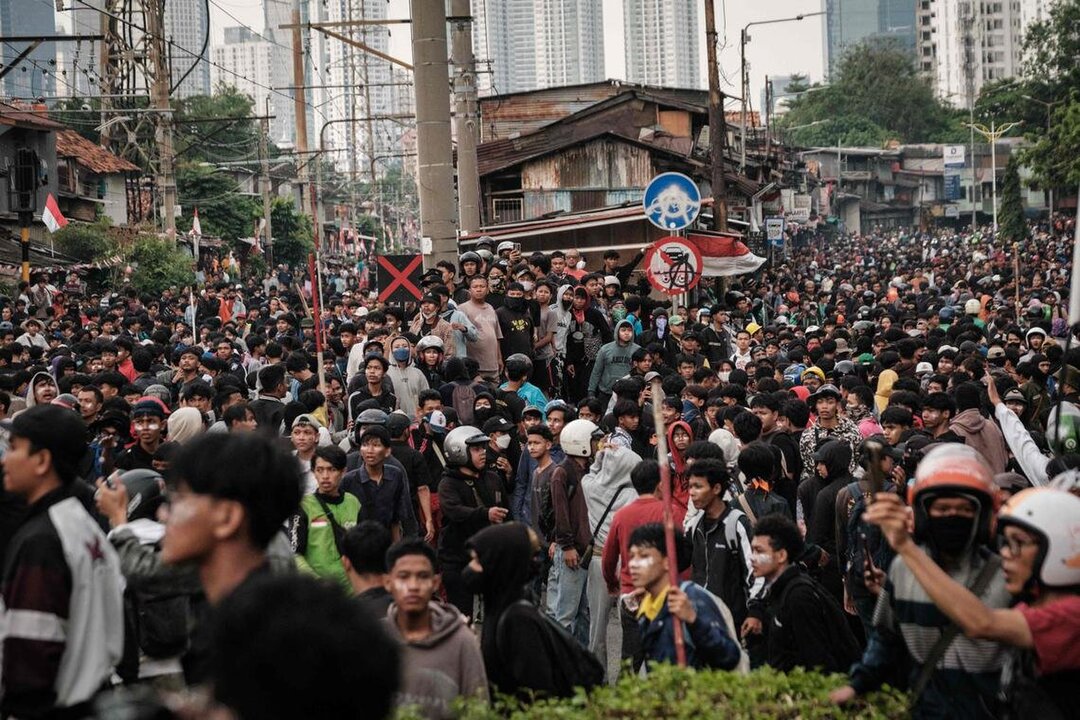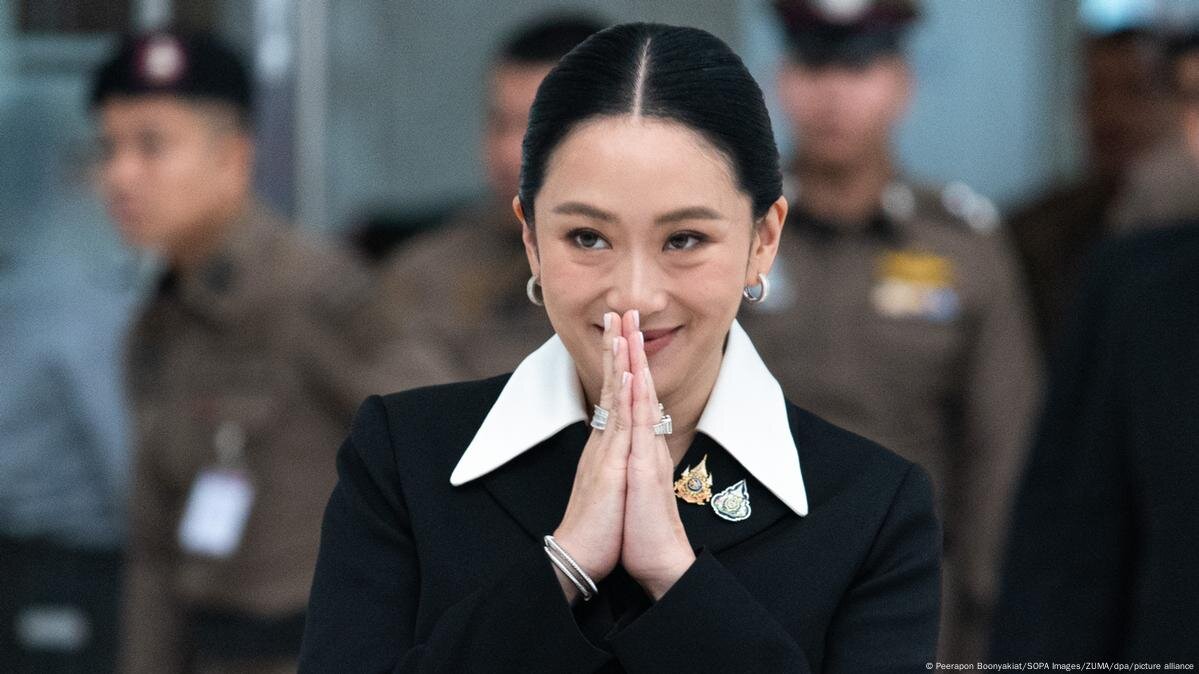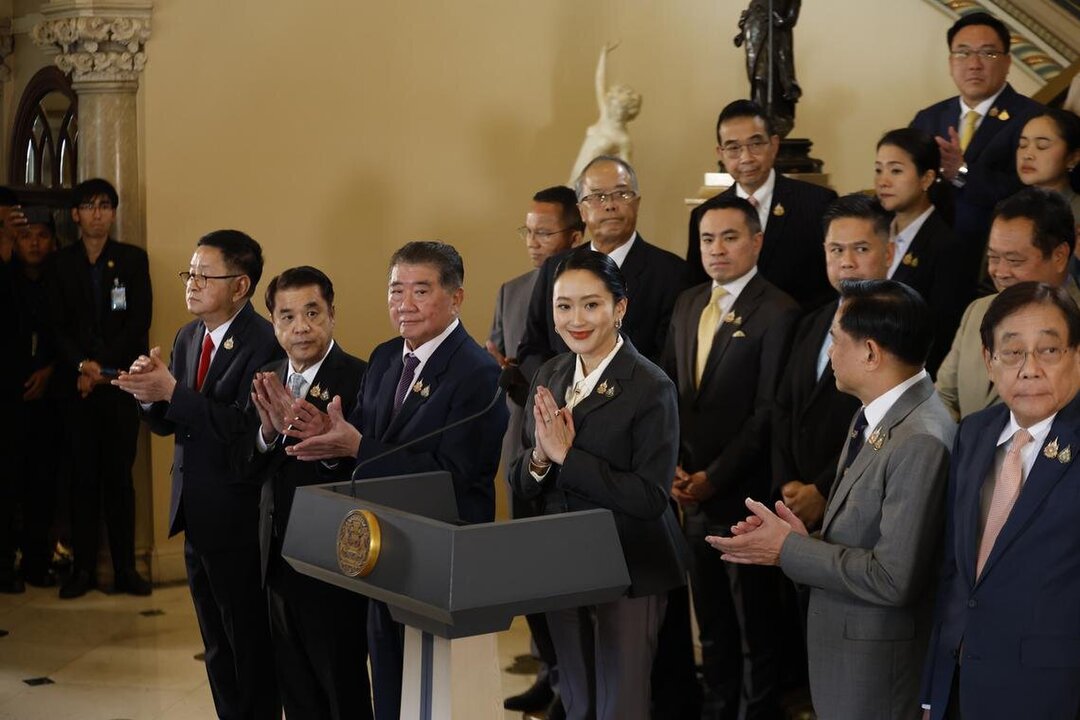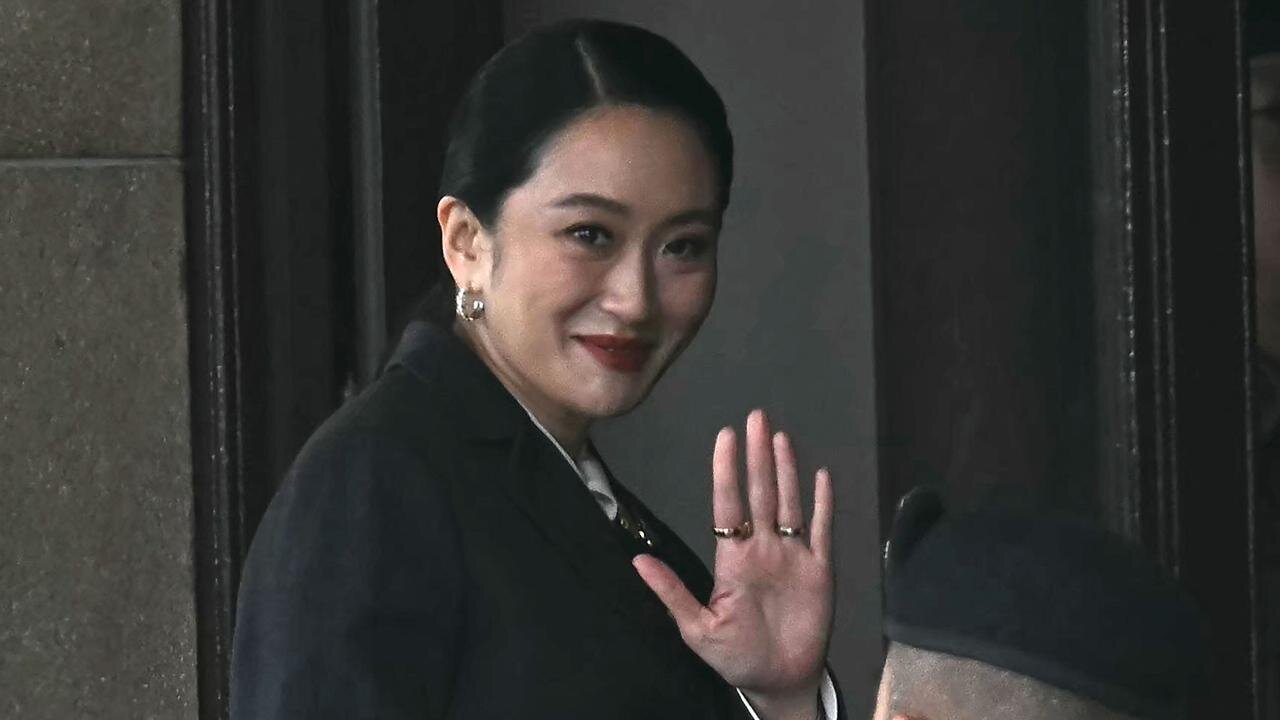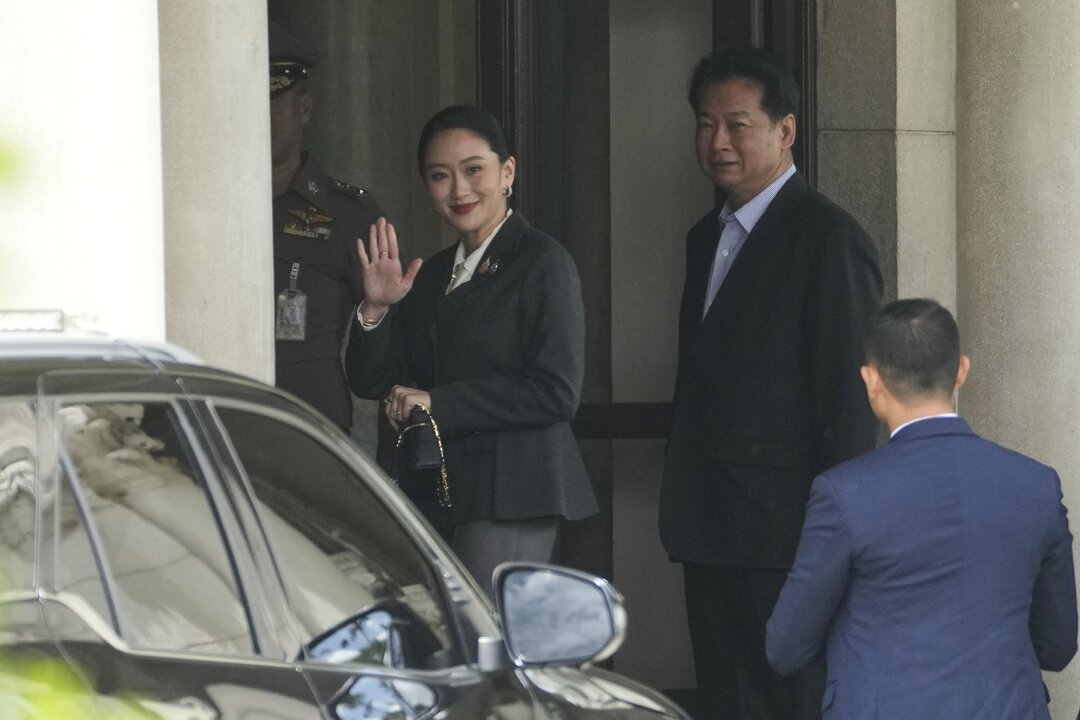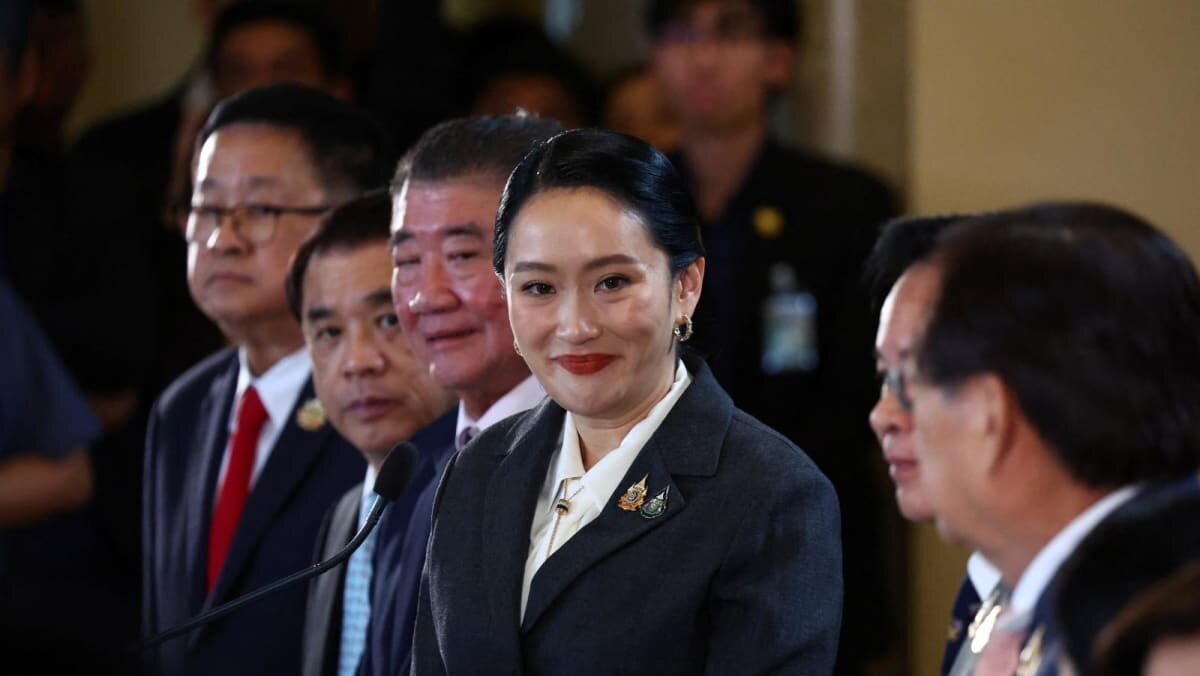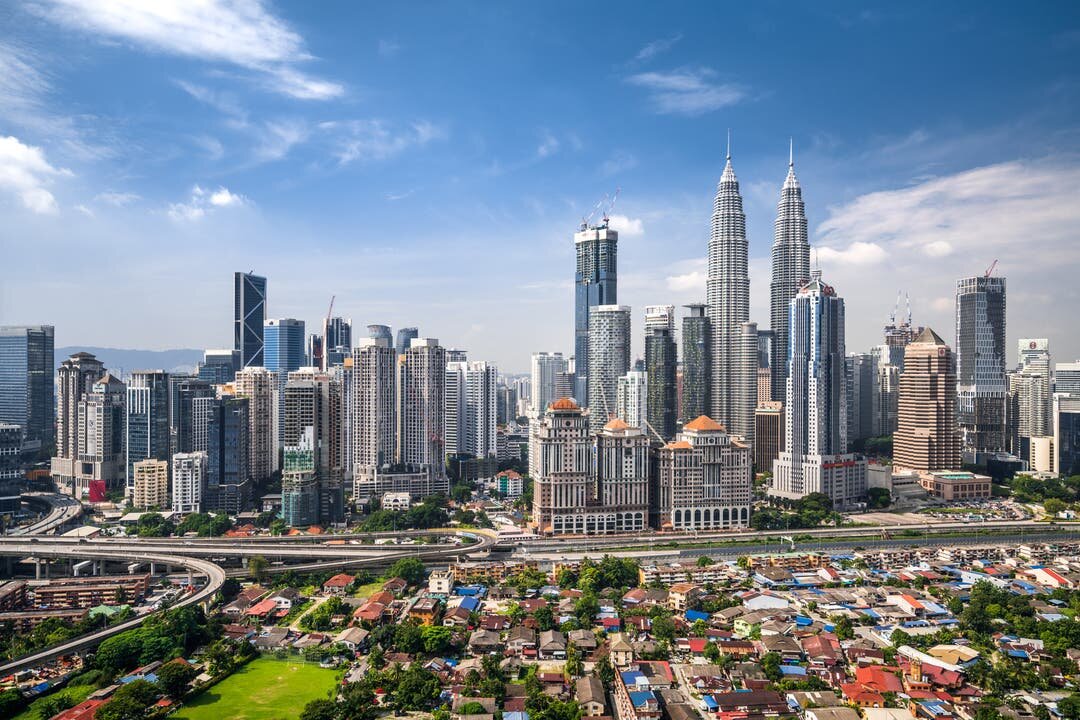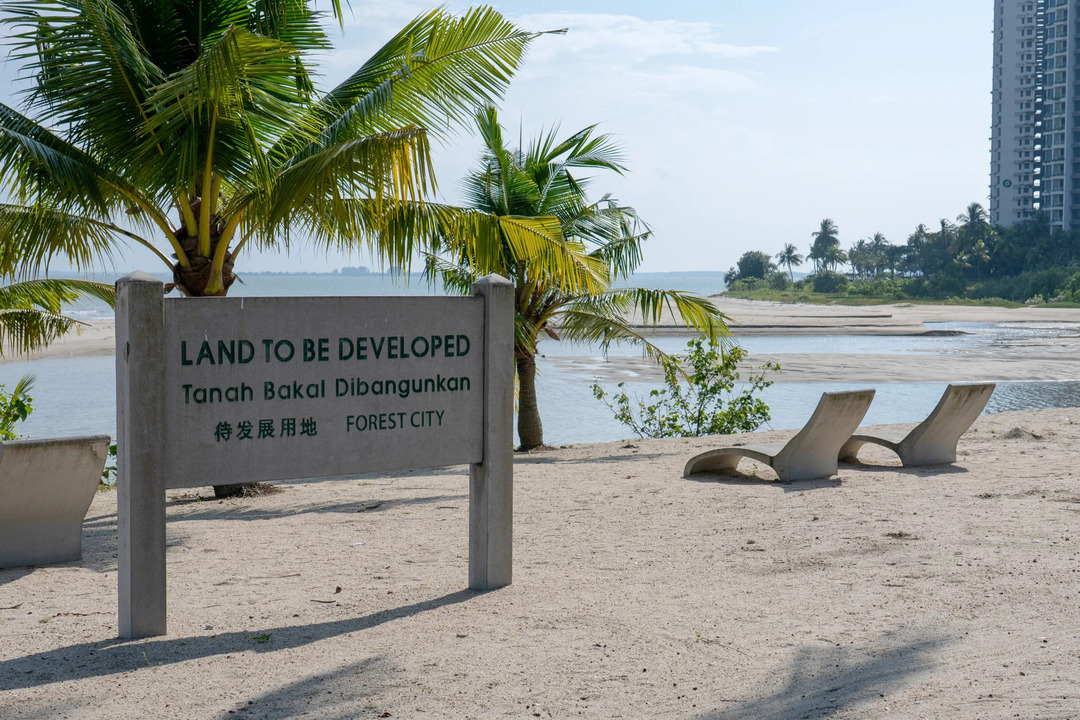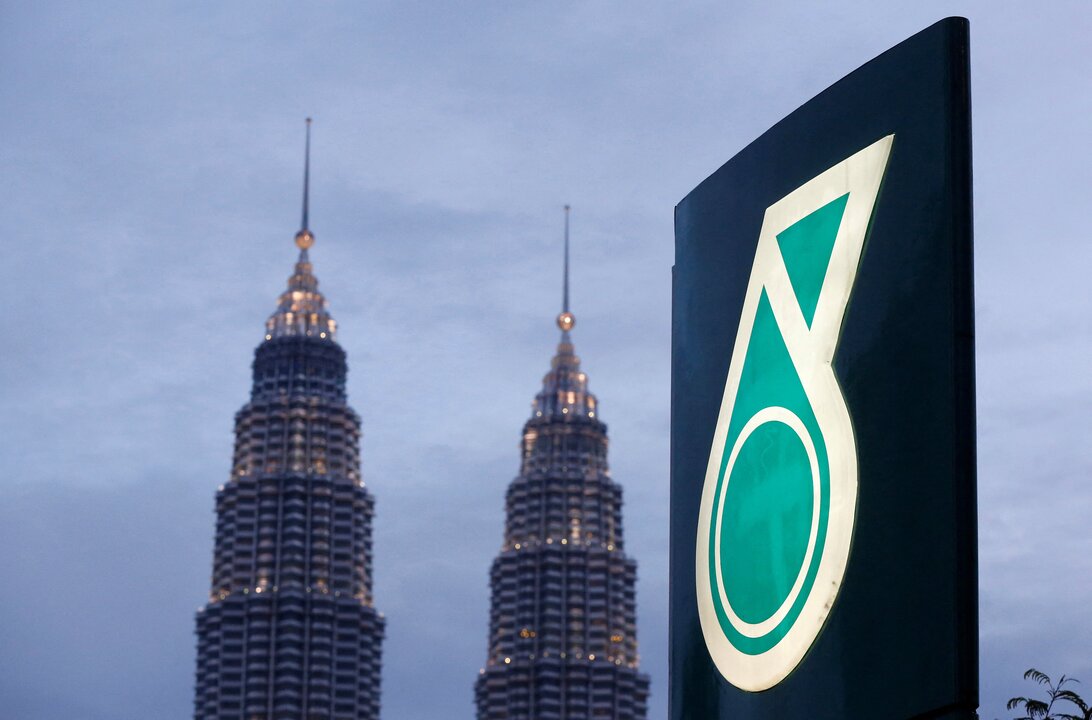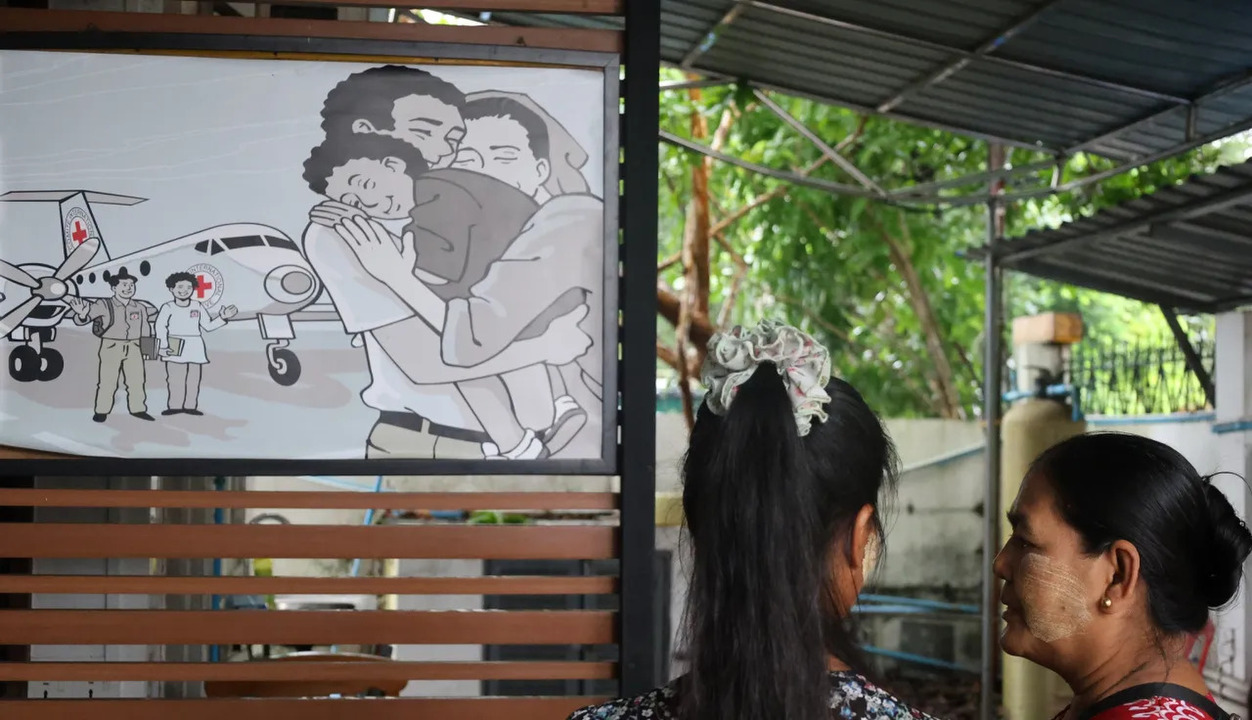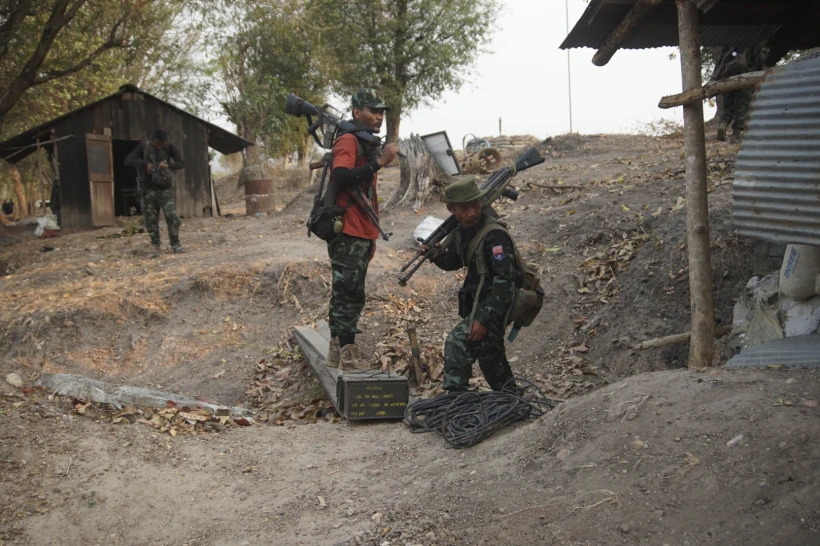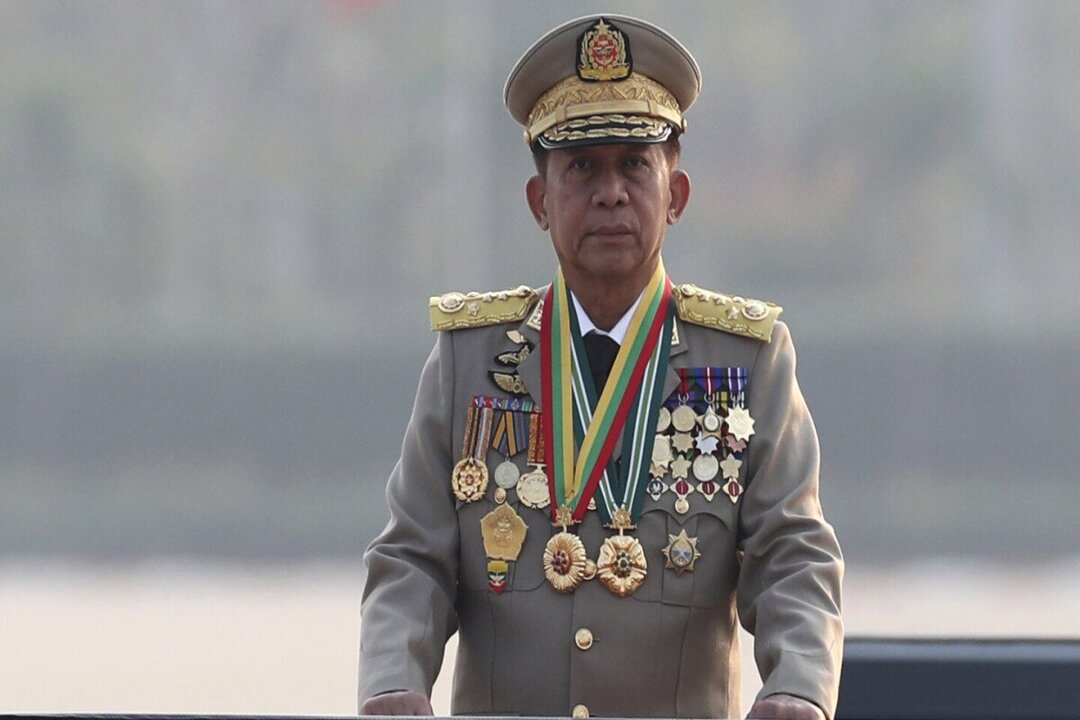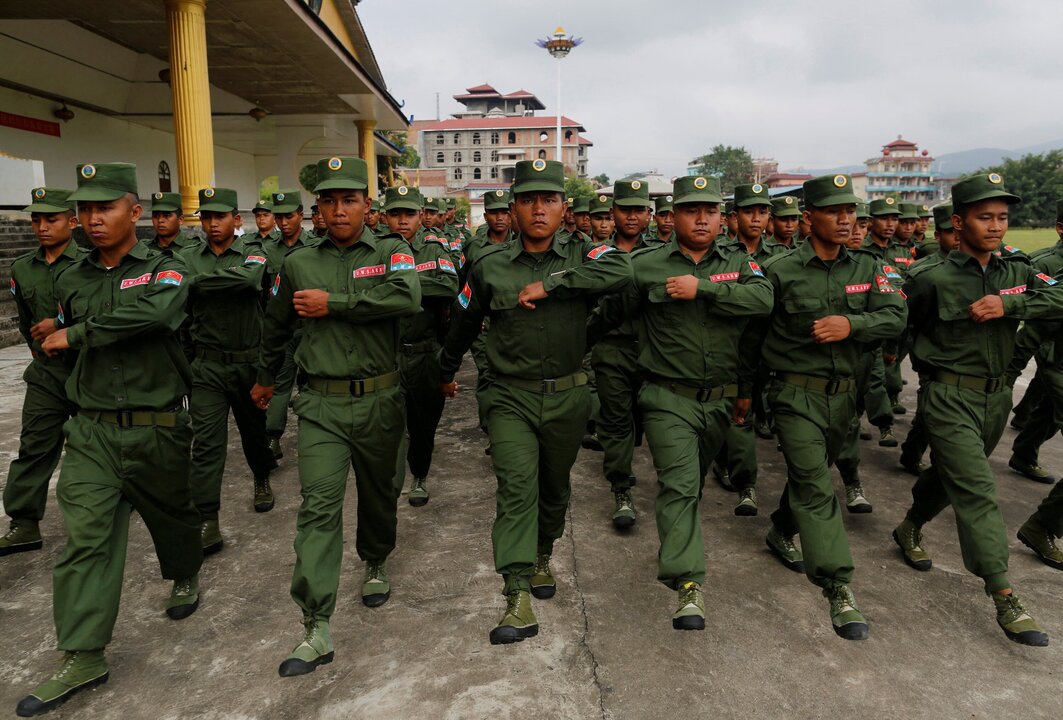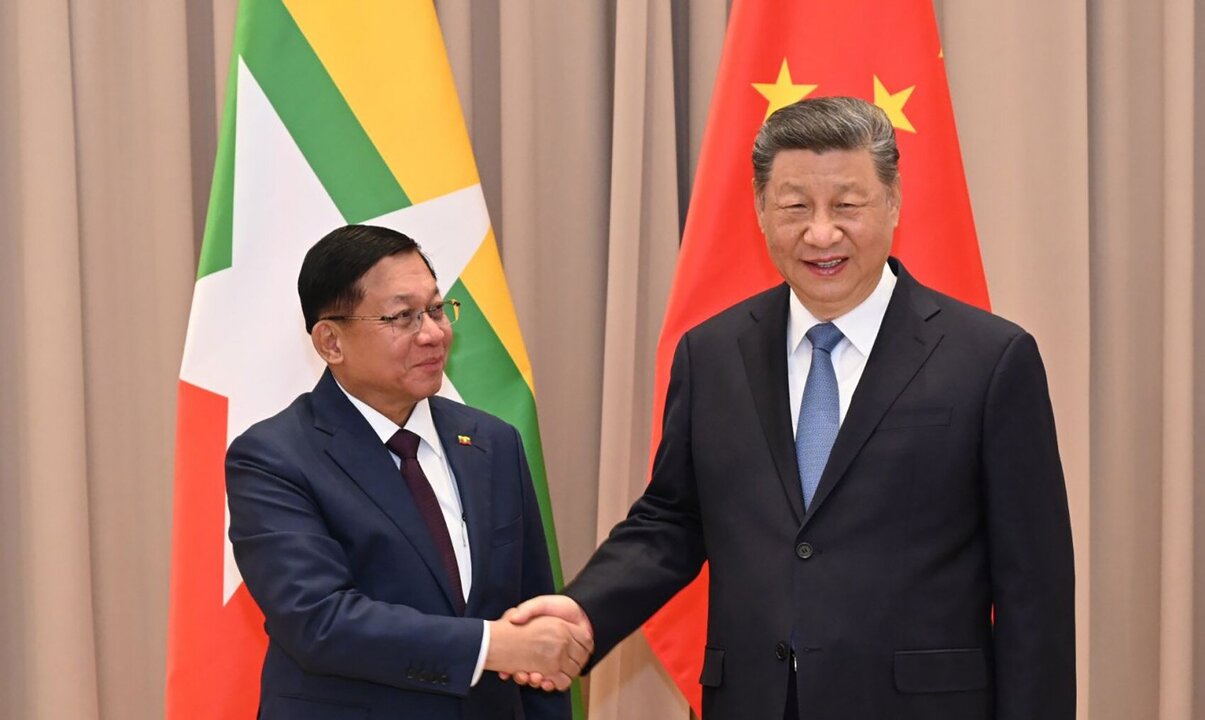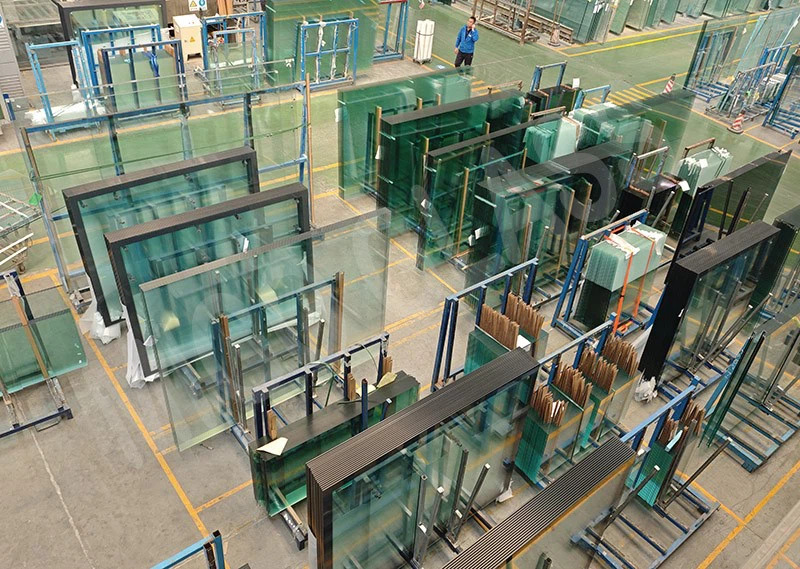
In Shanghai, marriage registration offices were overwhelmed by demand.
In Changning District, online booking slots for wedding registrations — the highest in years — were fully reserved within seconds, underscoring the popularity of the day as an auspicious occasion for couples.
In Guangzhou, Guangdong Province, 15 couples took part in a mass wedding held atop an outdoor platform 50 meters above ground at the Guangzhou Tower.
The ceremony, filled with applause and affection, highlighted the symbolic importance of the festival for many newlyweds.
The flower markets in Kunming, Yunnan Province, were equally lively.
Demand for roses, carnations, and sunflowers surged, driving prices up more than tenfold.
A standard 20-stem bouquet that usually sells for 10 yuan (about 50 baht) exceeded 100 yuan (around 500 baht).
Traders attributed the sharp increase to reduced flower yields caused by unfavorable weather, with the overall fresh flower price index climbing over 60% compared with pre-festival levels.
Despite lower production, the Kunming International Flower Auction Center reported maintaining an average daily supply of more than 6 million stems, ensuring ample availability for celebrations nationwide.
The Qixi Festival, rooted in a centuries-old legend of star-crossed lovers, continues to blend tradition with modern consumer culture, reaffirming its status as one of China’s most cherished celebrations of love.
The decision, delivered unanimously by the full 11-judge panel of the Court of Appeals for the Federal Circuit, is unusual in scope and underscores the significance of the case.
Normally, cases are reviewed by a three-judge panel.
The ruling upholds a lower court’s finding that President Trump’s use of IEEPA to implement tariffs targeting fentanyl-related imports and broader reciprocal tariffs exceeded the statute’s limits.
The court determined that while the president holds some emergency trade powers, the authority to impose tariffs rests primarily with Congress except in narrowly defined circumstances.
The decision will take effect on October 14, though tariffs remain in place until that date.
The case was brought forward by five businesses and a coalition of Democratic state attorneys general, who argued that invoking IEEPA to address drug trafficking and trade imbalances did not constitute a national emergency under the law.
The court agreed, reinforcing that tariff powers are constitutionally tied to congressional authority.
Despite the ruling, the Trump administration has emphasized that IEEPA was chosen for its flexibility and speed, allowing immediate action to safeguard American economic and national security interests.
Supporters point to the substantial revenue generated — estimated at roughly $400 billion annually, with projections suggesting as much as $4 trillion over a decade — which has offset tax cuts and bolstered fiscal stability.
Even some lawmakers who opposed Trump politically have acknowledged the significant fiscal benefits of tariff revenues.
Legal experts anticipate the administration will petition the U.S. Supreme Court, either through a writ of certiorari or an emergency appeal, to reinstate the tariffs.
In the meantime, alternative legal pathways remain open to the president, including tariff authority under Sections 201 and 122, or direct congressional authorization.
The outcome carries international implications, particularly in ongoing trade negotiations with major partners such as China.
Analysts note that foreign governments will closely monitor how Washington responds to ensure clarity on the future of U.S. tariff policy.
While the court decision limits one avenue of presidential trade authority, President Trump retains multiple tools to pursue his longstanding objective of protecting American industry, securing fair trade, and confronting the inflow of dangerous drugs such as fentanyl.
An analysis by audit firm EY, using data from the Federal Statistical Office (Destatis), found that the industry reduced its workforce by nearly 7%, eliminating approximately 51,500 positions between January and June.
Across the broader German economy, around 114,000 jobs were lost during the same period, meaning nearly half of all layoffs came from the auto sector.
Since 2019, the year before the Covid-19 pandemic, employment in the industry has declined by more than 112,000 positions.
EY described the job losses as unparalleled compared with other sectors, reflecting the severity of the crisis.
Jens Brorhilker, managing partner for audit at EY Germany, said collapsing profits, weak demand, and structural overcapacity have forced carmakers into sweeping cuts.
He warned that restructuring across Germany’s industrial base will likely prolong job losses.
The EY study reported that automotive revenues fell 1.6% year-on-year in the second quarter of 2025, while Volkswagen announced a steep decline in quarterly profits and lowered its full-year outlook.
Yet the sector’s contraction remained less severe than the 2.1% fall in overall German industry sales, suggesting that, despite mounting difficulties, carmakers continue to perform slightly better than the wider economy.
Three major pressures are weighing heavily on Germany’s automotive sector.
First, Chinese competition, particularly in the electric vehicle market, has intensified as German manufacturers struggle with regulatory hurdles that slow innovation.
Second, trade policy under U.S. President Donald Trump has reshaped global dynamics.
While tariffs have placed new costs on German exports, Trump’s firm stance has secured a recent U.S.–EU trade agreement setting car import duties at 15%, lower than expected, though contingent on reciprocal tariff reductions by the EU.
Third, Germany’s weak economy—having contracted in both 2023 and 2024, with GDP declining again in the second quarter of 2025—has compounded domestic and global demand challenges.
Exports of German cars and auto parts to the United States dropped 8.6% in the first half of 2025, while demand in China has also slowed.
Analysts warn that with exports to both major markets under pressure, the industry’s restructuring and job reductions are likely to continue.
The crisis underscores how central the automotive industry remains to Germany’s economic fortunes, while also highlighting the deep challenges of adapting to global competition, trade realignments, and technological transformation.
Japan’s top trade negotiator, Ryosei Akazawa, has postponed a scheduled trip to Washington originally intended to finalise the financial and technical details of a $550 billion investment package designed to secure tariff relief from the United States. The move reflects unresolved administrative questions that must be addressed before ministerial-level discussions can proceed .
Under a July agreement, Washington and Tokyo agreed to reduce U.S. tariffs on most Japanese goods to fifteen percent, down from earlier rates of twenty-five percent, in exchange for substantial Japanese investment via government-backed loans, guarantees, and a small portion of equity . For the auto sector, the levy was to drop from twenty-seven point five percent to fifteen percent, though no timeline has yet been established .
A central point of contention remains the so-called “stacking” issue, where the fifteen-percent rate could be layered on top of existing tariffs on certain products—such as beef—contradicting the spirit of the agreement. Japan is urging the U.S. to amend its presidential executive order to enact a “no-stacking” provision, replicating arrangements made with the European Union .
Chief Cabinet Secretary Yoshimasa Hayashi emphasised the urgency of amending the order and urged the U.S. to issue a formal order to reduce tariffs on automobiles and auto parts as soon as practical . Meanwhile, Commerce Secretary Howard Lutnick has indicated that an announcement on the investment package is expected imminently .
Japan’s exports registered the steepest monthly decline in four years in July, prompting a downward revision to its annual growth forecast—from 1.2 percent to 0.7 percent—which underscores the economic stakes of these trade discussions .
Talks are expected to continue at the administrative level, with Akazawa potentially rescheduling his Washington visit as early as next week once the outstanding issues are resolved .
— Key facts:
- A $550 billion Japanese investment pledge hinges on securing tariff relief from the U.S.;
- Tariff reductions to 15 percent for most Japanese goods, and for autos from 27.5 percent, remain unsigned; implementation stalled by unresolved detail;
- Japan demands a clarified executive order from President Trump to ensure tariffs do not duplicate (no-stacking) and to formalise reductions on auto goods;
- Economic pressure from falling exports and reduced growth projections increases urgency;
- Negotiators remain in close contact and may resume travel once administrative-level discussions clear outstanding points.
